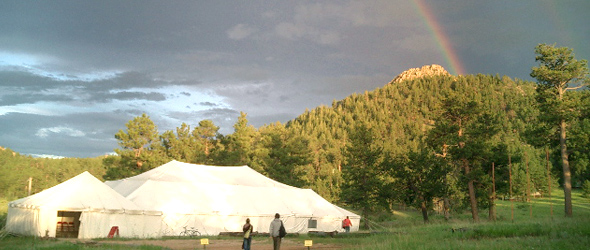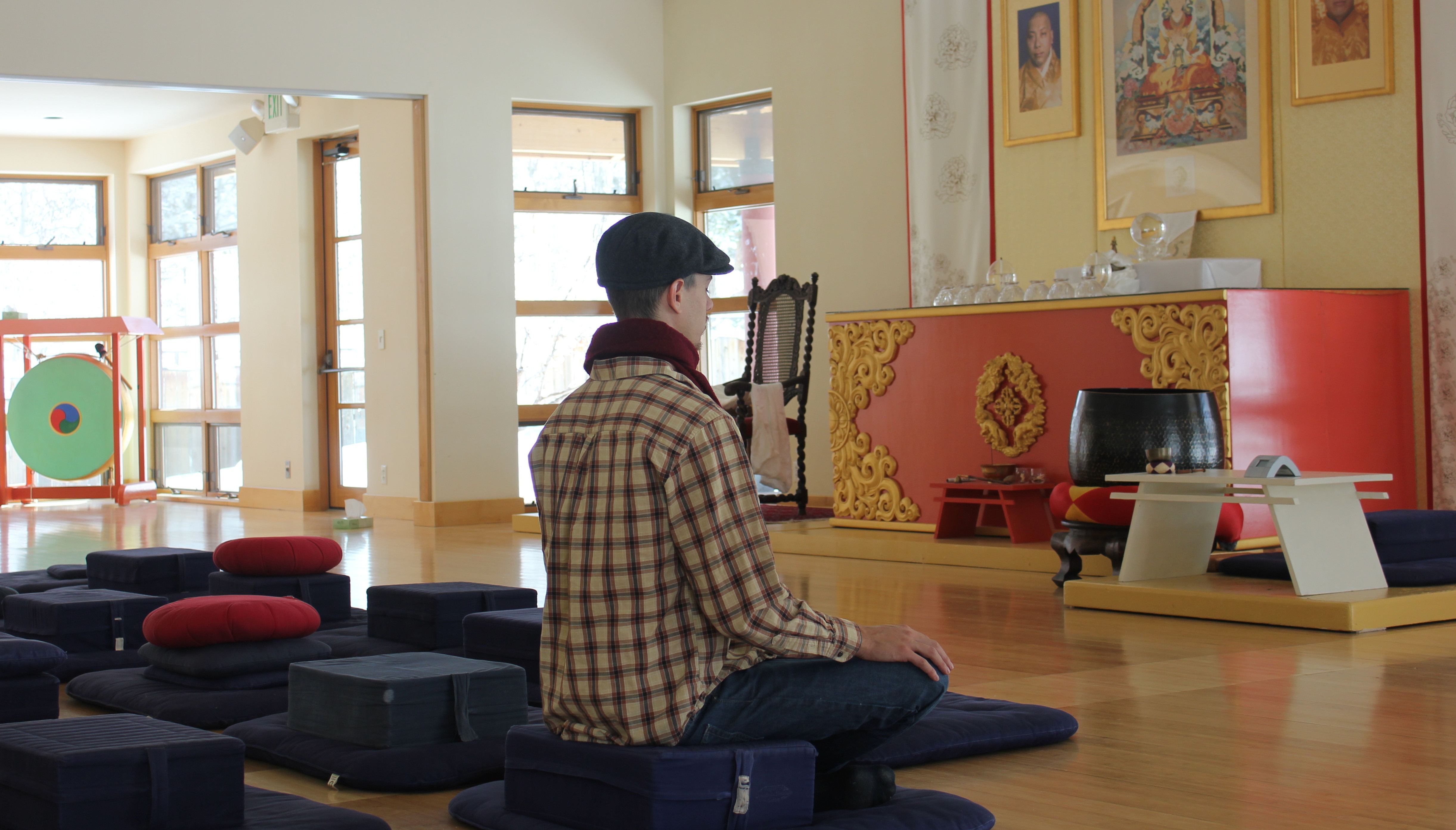Compassionate Acceptance as a Path of Healing
By Thomas Roberts //
How often do we embark on our spiritual growth journeys with the well-meaning intention of improving, changing, quieting, calming, or otherwise modifying ourselves? Thinking that if we just get it right, then our demons will finally leave us alone!
I know I did.
With that approach, the harder we work at it, the more conflicted, frustrated, anxious, self-berating, and distant it seems we become from that goal we so want to achieve.
A long time ago, I was talking with a fellow journeyer about this whole conundrum.
She said: “You know it’s kind of like training a dog by locking it in the basement and hoping it will eventually become a nice dog.
Hmmm…
In truth, we simply cannot silence—or otherwise lock away—those parts of ourselves that are wounded, messy, difficult and scary. They need to be recognized, accepted, and held with great love and compassion. And this brings us to the notion of compassionate acceptance.
After all, the guts of our spiritual/healing journey is not about silencing, changing, or becoming something different. Rather, as Pema Chödrön reminds us, it has to do with staying:
“To stay with that shakiness—to stay with a broken heart, with a rumbling stomach, with the feeling of hopelessness and wanting to get revenge—that is the path of true awakening. Sticking with that uncertainty, getting the knack of relaxing in the midst of chaos, learning not to panic—this is the spiritual path.”
To reject any part of ourselves for any reason (anger, denial, shame, guilt, anxiety) is the greatest violence we can do to our soul. In fact, such rejection only magnifies our suffering as it deepens the duality between various parts of ourselves, thus separating us from our true nature.
You may recall, that according to the Buddhist view, we are all already Buddhas—enlightened beings. We eventually forget this as we stray towards a manufactured life of how were are expected to be, and away from the life we were born into—our true being, our Buddha nature.
Compassionate acceptance is a way of rediscovering this nature, as it invites us to relax our resistance, our fear, our denial, and come to embrace those parts of ourselves that hurt. In this way, we stop the whole fight. This allows us to live with a profound and meaningful grounding in patience, openness, and compassion for ourselves and all beings.
During the upcoming retreat I’ll be leading at Shambhala Mountain Center, we will engage in our healing journeys by working through three important steps of compassionate acceptance:
- Recognizing
- Accepting
- Holding
All this is done with great love, gentleness, and compassion. When the painful aspects of our being no longer fear our rejection, denial, and silencing, we can then embark on deep and meaningful healing with patience, openness, and compassion. Eventually, we become reunited with our true nature.
During this retreat, you will be offered the opportunity to come to a greater and deeper level of compassionate acceptance at your own pace and in your own way. An opportunity to integrate and develop a lasting sense of acceptance of you: ALL of you, without harmful distinctions!
A final thought:
If we can allow some space
within our awareness and rest there,
we can respect our troubling thoughts and emotions,
allow them to come, and let them go.
Our lives may be complicated on the outside,
but we remain simple, easy, and open on the inside.
—Tsoknyi Rinpoche
If you have questions feel free to ask: tbr1401@gmail.com
I invite you to attend and explore this most wonderful journey!
Tom
SMC hosts Compassionate Acceptance: A Mindful Path to Healing Life’s Wounds with Thomas Roberts, July 27–30, 2017 — click here to learn more
About the Author










